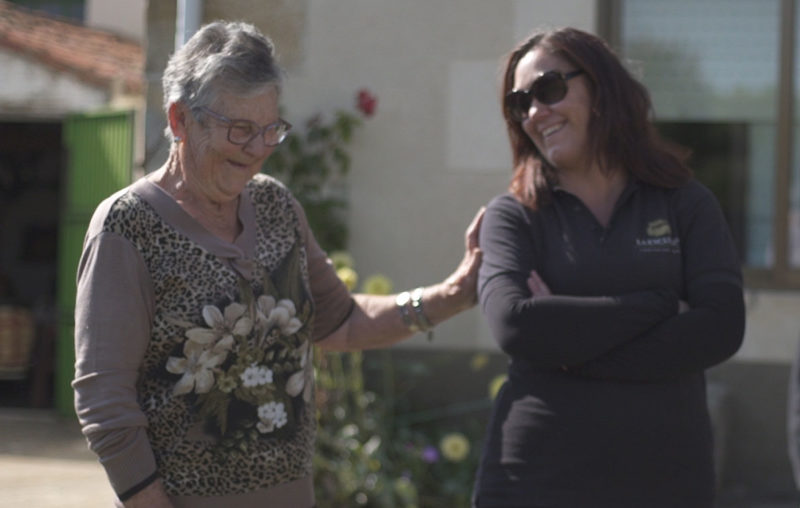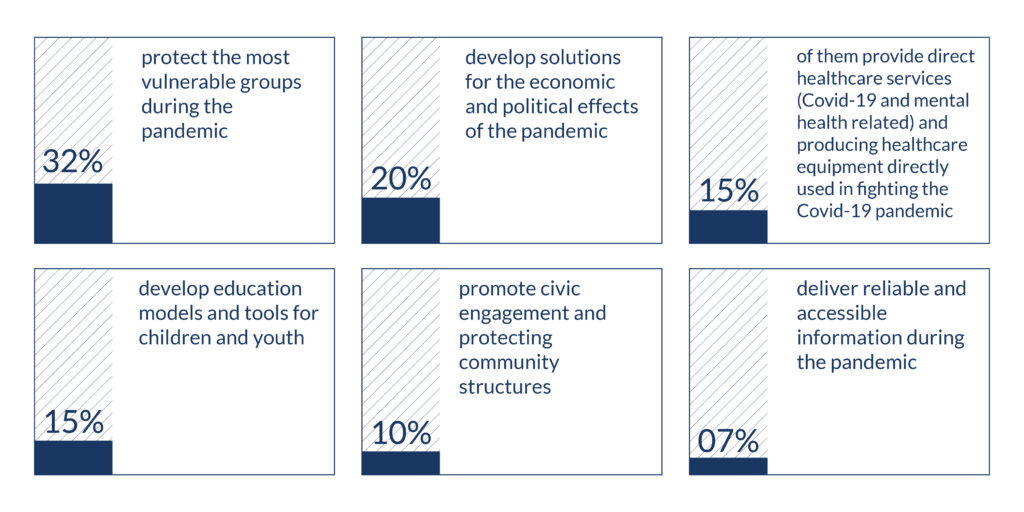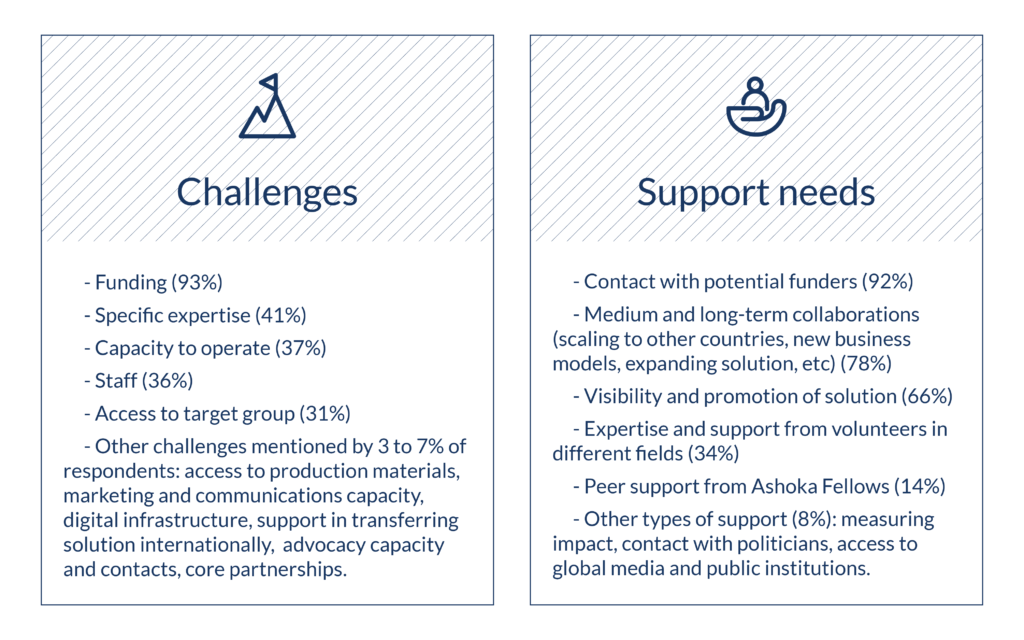News:
Want to help fight the Covid-19 pandemic long-term?
Support Solutions from Social entrepreneurs. Here’s how.
Support Solutions from Social entrepreneurs. Here’s how.

The Covid-19 pandemic sees social entrepreneurs throughout Europe and the world rising to the challenge and changing or adapting their work to meet the needs posed by this highly demanding situation. With solutions ranging from direct healthcare response to fighting disinformation and consequences of the ensuing economic crisis, social entrepreneurs directly contribute to the efforts to manage this crisis. In order for their endeavors to reach more people and communities and to keep pace with the volatile situation societies are facing, social entrepreneurs need the ongoing support of intermediary organizations, funders, and governments.
Ashoka Europe with the support of Zalando initiated a program of support for social entrepreneurs in the Ashoka network – Changemakers United. The program focused on understanding the solutions of the social entrepreneurs to the Covid-19 crisis and their concrete needs for developing these solutions further. It then selected 20 social entrepreneurs and connected them with experts from the Ashoka network and other partner organizations for a mentorship and coaching process around these solutions. The program constantly communicates about their efforts and continues to tailor collaborations between various parties based on the real demands of the social entrepreneurs.

How social entrepreneurs contribute
As part of the Changemakers United program, 59 Ashoka Fellows from 18 European countries responded to a survey around their needs in rolling out their Covid-19 solutions. Out of these,
- 32% protect the most vulnerable groups during the pandemic;
- 20% develop solutions for the economic and political effects of the pandemic;
- 15% of them provide direct healthcare services (Covid-19 related and mental health related) and producing healthcare equipment directly used in fighting the Covid-19 pandemic;
- 15% develop education models and tools for children and youth;
- 10% promote civic engagement and protecting community structures;
- 7% deliver reliable and accessible information during the pandemic;
The target groups of all these solutions are very diverse and cover a wide range of populations: families, youth and children, education professionals, Covid-19 patients, healthcare professionals, the elderly, the homeless, farmers, migrants and refugees, low-income families, manufacturers and other businesses, entrepreneurs/self-employed people, people with learning disabilities, victims of domestic violence, offenders and ex-offenders, investigative journalists, etc.
What stands out is the strong focus of the social entrepreneurs on protecting vulnerable communities that will be most affected by the pandemic (32% of respondents), as well as their focus on medium and long-term consequences of the pandemic (52% of respondents). Although a significant proportion of them also focus on direct healthcare response, the strength of the social entrepreneurs is in preparing citizens and communities for resiliency in the months and years to come – in terms of solidarity, community support and also economically.

What social entrepreneurs need
The social entrepreneurs emphasized the following main challenges and needs for support in their Covid-19-related work:

In more concrete terms, the social entrepreneurs shared needs around fundraising strategies and opportunities, marketing and communication strategies especially in an online environment, developing digital formats, contacts with potential partners, legal expertise for patents, licensing, and scaling, advocacy expertise, staff needs and personal coaching needs.
In all of these needs the international component was strongly represented. Social entrepreneurs think of scaling their solutions and recognize the international dimension of the problem they’re facing. 95% of social entrepreneurs surveyed plan to scale their solutions medium-term: 58% in their current country of operation and 37% of them in other countries. This strongly relates to the fact that social entrepreneurs estimate the demand for their services to increase in the future: 83% of the social entrepreneurs interviewed expect the demand for their services to rise in the next 6 months, 8% expect it to stay the same and 7% cannot assess. Only 2% expect a decrease in demand.
It’s clear therefore that the support for solutions also has to be thought of internationally and multi-level – from networking to legislation to access to target groups and distribution channels.
What you can do
Social entrepreneurs are clearly shifting towards developing solutions that work in a Covid-19 world. They show once again the fast, dynamic nature, adaptability of their work and their close touch with shifting needs of their communities. What is more, social entrepreneurs go beyond immediate responses and prepare societies for medium and long-term resiliency through their work. Many social entrepreneurs plan to scale their solutions internationally as demand for their services increases.
Supporting the efforts of social entrepreneurs in the coming months and years can significantly increase the number of people benefiting and can reduce the negative consequences of the pandemic on a variety of fronts. Financial resources are necessary, but so are topical expertise, networking, and visibility. Either individually or through the organizations we represent, we can all consider what we have and what we can offer, so that the overall support during these times can be multiplied.

